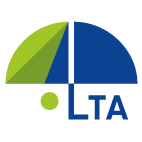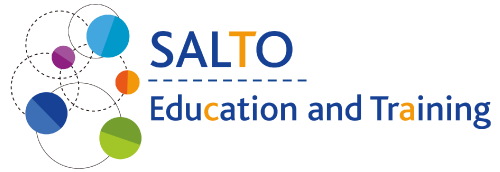Contact Seminar "Enhancing Digital Competences in Education and Training"

Main Info
TCA Description
The idea of the contact seminar is to find partners with similar interests and develop ideas for the new cooperation partnerships on the issue of digital transformation. The seminar will also give an opportunity to share experience and discover new approaches in the field with the special focus on creating cross sectoral and transversal collaborations between different sectors and organizations.
Seminar will be held at face-to-face format.
- New good quality Erasmus+ KA2 project ideas/proposals to the next 2023 selection round.
- New contacts and possible contact partners for KA2 projects
- Shared experiences and new ideas/inspiration on digitalisation
Program and more information on seminar website: https://contactseminar.wixsite.com/erasmusplus (erasmusplus-contactseminar-estonia.org)
Digital technologies are key drivers of innovation, growth and job creation in the global world.
However not everybody has the knowledge, skills and attitudes to be able to use digital technologies in a critical, collaborative and creative way. The lack of digital competence of a large part of the EU population has dramatic repercussions on their employability perspective.
The rapid digital transformation of the economy means that almost all jobs now require some level of digital skills, as does participation in society at large. Digital skills are now as vital as literacy and numeracy and Europe therefore needs digitally competent people who are not only able to use but also to innovate and lead in using these technologies.
Digital competence refers to the ability to use digital technologies. It involves the confident and critical use of Information Society Technology (IST) for work, leisure and communication. Being digitally competent is more than being able to use the latest smart phone or computer software — it is about being able to use such digital technologies in a critical, collaborative and creative way.
One of the main challenges that require actions from educational sector is how to prepare the population to constantly keep updating digital competences in order to adapt in technologically diverse environment. Transnational collaboration and exchange of innovative ideas between European educational institutions through Erasmus+ programme is an opportunity for tackling these issues.
Practical information:
The Estonian NA will cover accommodation for 3 nights (19.09, 20.09 and 21.09). Extra nights must be paid separately.
Partners and participants
The seminar is open to participants within the fields of school education, vocational education and training, adult education and higher education. The contact seminar is mainly targeted at representatives from schools, VET and higher education institutions, second chance schools, adult education centres, teacher training institutions, enterprises, research institutions and other organizations interested in the theme if seminar and committed to develop Erasmus+ cooperation partnerships.
Pending booked places
Accepted places
TCA Participant Application
Long-term Activity Info
Due to rapid technological development and a growing
need for sustainability, digital teaching and learning in education had already
been in focus for a while prior to the pandemic – a paradigm shift towards
digitisation in education was already underway. Current events have accelerated
the paradigm, making way for a new normal. The Covid-19 pandemic and the
physical distancing that followed have affected all walks of society, also
education. In order to keep education running, educational institutions have
had to quickly adapt to the situation. This has resulted in an unprecedented push to digital teaching and
learning.
Digitalisation offers many opportunities, but also presents many challenges. Reinvention is not always a choice. The coronavirus is permanently reshaping the way we live, teach and learn. Some of the behaviours developed in crisis — including wide-scale digital adoption — will outlast the pandemic, well after restrictions on activity are lifted.
Digital transformation in education is more necessary during this crisis, not less. Resources — both in terms of talent and money — will likely be constrained. Digital initiatives may need to be reprioritised based on relevance in the current environment. New problems and opportunities may come to light with greater urgency. Digital transformation roadmaps are needed. It is key to continue to experiment and innovate with digital solutions. It is vital to train target groups to use existing digital methods more effectively and create new ones as well.
The overall aim of this long-term activity is
- to encourage educational institutions across Europe to use lessons learnt during the Covid-19 pandemic, and create state-of-the-art and update existing methodologies for digital learning at individual, community and institutional level; and
- to use them strategically in the future.
- thereby influencing Erasmus+ Programme and policy objectives at national and EU level
We are planning to proceed the topic during the available time frame through seminars and research activites on three levels:
Seminars:
- 1st (individual) level: key actors, teachers, school staff, etc. – aiming to improve digital awareness, skills and competences, to enrich methodology, and to facilitate digital content creation as well as to encourage the use of existing platforms such as e-Twinning, etc.
- 2nd (community) level: networking among teachers in the online space – aiming to facilitate communication and collaboration to be channelled into classroom teaching by learning from one another as well as emphasising the use of existing platforms such as e-Twinning, etc.
- 3rd (institutional) level: school leaders, decision makers – aiming to upscale and support digital transformation into institutional level.
- Research:
Through activities of the LTA 2021-2024, participants are supposed to learn about existing and tested practices that can be incorporated into their own strategies as well as identify possible gaps leading to further and better Erasmus+ projects and encourage the development of state-of-the-art solutions.
LTA continues to welcome any NAs
- wishing to adopt Digital wellbeing programme realized by HU01 to implement in 2022/23 budget year as organizers
- wishing to examine any other aspect of digitization in schools as an organizer,
- or co-organizer/co-financing partner in any other activity implemented by other national agencies,
- or of course as sending participants to any LTA-supported event.
The expected impact of the LTA in ascending order of policy effect:
- Coordinating LTA in Digitalisation with research, events, study visit for quality projects in E+
- Supporting Erasmus+ programme with high quality Digitalisation project
- Exploiting E+ project results in the development of SE actors, institutions in the field of digitalisation
- Upscaling project results to policy level for improving E&T sector


